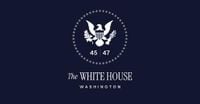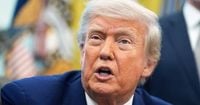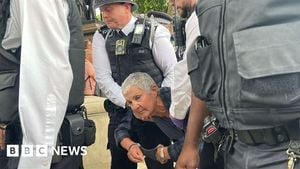On June 4, 2025, President Donald J. Trump signed a sweeping proclamation reinstating and expanding a travel ban targeting nationals from 12 countries, with partial restrictions on seven others, citing national security concerns and the need to protect the United States from foreign terrorists and other threats. The ban, set to take effect at 12:01 a.m. Eastern Daylight Time on June 9, 2025, marks a return to one of the most controversial policies of Trump's first term, which was originally enacted in 2017 and later repealed by President Joe Biden in 2021.
The full ban applies to nationals from Afghanistan, Myanmar (Burma), Chad, the Republic of the Congo, Equatorial Guinea, Eritrea, Haiti, Iran, Libya, Somalia, Sudan, and Yemen. Additionally, nationals from Burundi, Cuba, Laos, Sierra Leone, Togo, Turkmenistan, and Venezuela face partial travel restrictions. The White House justified these measures as necessary to shield Americans from dangerous foreign actors and to address inadequate screening and vetting capabilities of the listed countries.
Trump explained the rationale in a video statement posted on social media, referencing a recent attack in Boulder, Colorado, where a man injured 12 people during a pro-Israel demonstration by throwing incendiary devices and wielding a makeshift flamethrower. The suspect, Mohamed Sabry Soliman, is an Egyptian national who entered the U.S. on a tourist visa that had expired while his asylum case was pending. Notably, Egypt is not among the countries included in the travel ban, a point that has drawn scrutiny given Trump’s close ties with Egyptian President Abdel Fattah al-Sisi.
“A recent terror attack in Boulder, Colorado, has underscored the extreme dangers posed to our country by the entry of foreign nationals who are not properly vetted, as well as those who come here as temporary visitors and overstay their visas. We don’t want them,” Trump said, emphasizing the need for stronger border controls and vetting procedures.
The proclamation follows Executive Order 14161, signed by Trump on January 20, 2025, directing the Secretary of State, Attorney General, Secretary of Homeland Security, and Director of National Intelligence to identify countries with deficient vetting and screening information. On April 9, 2025, the Secretary of State submitted a report recommending full or partial suspensions on the admission of nationals from several countries. Trump consulted with his cabinet and intelligence officials before finalizing the list of countries subject to restrictions.
The administration cited numerous reasons for the bans, including high visa overstay rates, inadequate identity management and information sharing by foreign governments, refusal to accept back removable nationals, and the presence of terrorist groups within certain countries. For example, Chad exhibited visa overstay rates as high as 49.54% for business/tourist visas and 55.64% for student and exchange visitor visas in 2023. Somalia was described as a terrorist safe haven with a government lacking effective control over its territory. Haiti faced an influx of illegal immigrants during the Biden administration, compounding security concerns.
Despite the broad scope of the ban, several exemptions exist. Lawful permanent residents of the U.S., Afghan nationals holding Special Immigrant Visas, diplomatic visa holders, immediate family members of U.S. citizens, and athletes traveling for major sporting events such as the 2026 World Cup or the 2028 Olympics are exempt. Dual nationals traveling on passports from unrestricted countries are also permitted entry. The Secretary of State and Attorney General retain discretionary authority to grant case-by-case waivers when it serves the national interest.
The ban immediately drew mixed reactions. Somalia pledged cooperation with the U.S. to address security concerns, with its ambassador Dahir Hassan Abdi stating, “Somalia values its longstanding relationship with the United States and stands ready to engage in dialogue to address the concerns raised.” Conversely, Venezuela’s Interior Minister Diosdado Cabello condemned the ban, describing the U.S. government as fascist and warning Venezuelans that “being in the United States is a big risk for anybody, not just for Venezuelans.”
Democrats and human rights organizations were swift to criticize the policy. Congresswoman Pramila Jayapal condemned the ban as an expansion of Trump’s earlier “Muslim ban” and warned it would further isolate the U.S. on the world stage. Congressman Don Beyer accused Trump of betraying the ideals of the nation’s founders. Amnesty International USA called the ban “discriminatory, racist, and downright cruel,” while Human Rights First labeled it “yet another anti-immigrant and punitive action.”
The travel restrictions revive memories of the original 2017 ban that targeted seven predominantly Muslim countries and sparked nationwide protests and legal battles. That ban was eventually upheld by the Supreme Court in a 5-4 decision in 2018, which affirmed the president’s authority to regulate immigration for national security reasons. The current ban includes Iran, Libya, Somalia, and Yemen — the only countries appearing on both lists — alongside new additions such as Myanmar, Chad, and Haiti.
Critics point out that terrorist attacks by individuals from the newly banned countries are exceedingly rare. Alex Nowrasteh, vice president of economic and social policy studies at the Cato Institute, highlighted that from 1975 through 2024, the annual chance of being murdered by a terrorist from one of these countries was about one in 13.9 billion per year, underscoring the low statistical risk.
Trump’s immigration policies have long reflected a preference for restricting immigration from African and certain Asian countries, as well as Haiti, which he disparaged during his 2018 White House discussions. His administration previously limited refugee admissions broadly and revoked Temporary Protected Status for Haitians and Venezuelans, moves that have been met with legal challenges and humanitarian concerns.
The proclamation also clarifies that no visas issued before June 9, 2025, will be revoked, and it does not apply to individuals granted asylum, refugees already admitted, or those protected under international conventions against torture. The Secretary of State will review the restrictions every 180 days to determine whether adjustments are warranted, signaling potential future changes depending on foreign cooperation and security improvements.
As this new chapter in U.S. immigration policy unfolds, it remains to be seen how the travel ban will impact diplomatic relations, immigrant communities, and the broader discourse on national security and human rights. What is clear is that the debate over balancing safety with openness continues to be a defining issue in American politics and society.





